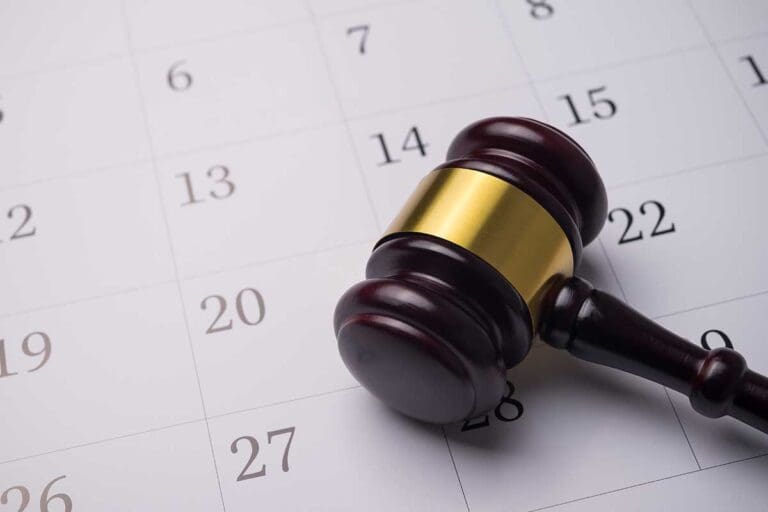Key Takeaways
Mistake 1: Delaying medical treatment after the accident.
Mistake 2: Failing to gather evidence at the scene.
Mistake 3: Admitting fault or making careless statements.
Mistake 4: Accepting a quick, low settlement offer.
Mistake 5: Not consulting a personal injury attorney.
Mistake 6: Missing the deadline to file your claim.
Mistake 1: Delaying Medical Treatment After the Accident
Failing to seek immediate medical attention after an accident is one of the biggest mistakes you can make. Even if you feel fine, some injuries—like concussions or internal trauma—may not show symptoms right away.
- Why it’s a problem: Insurance companies may argue that your injuries are not serious or were not caused by the accident.
- How to avoid it: Visit a doctor or emergency room immediately after the accident. Follow all treatment plans and attend follow-up appointments.
Tip: Keep all medical records, bills, and treatment notes as evidence of your injuries.
Mistake 2: Failing to Gather Evidence at the Scene
The moments after an accident can be chaotic, but failing to collect evidence can make it difficult to prove your case later.
- What to collect:
- Photos of the scene, injuries, and property damage.
- Contact information for witnesses and all parties involved.
- Police reports or incident documentation.
- Why it’s important: Evidence helps establish fault and strengthens your claim when negotiating with insurers or going to court.
Tip: If you’re unable to gather evidence due to injuries, ask a friend or family member for help.
Mistake 3: Admitting Fault or Making Careless Statements
In the confusion after an accident, it’s natural to apologize or try to explain what happened. However, these statements can be used against you.
- Why it’s a problem: Admitting fault—even casually—can reduce or eliminate your ability to recover compensation.
- What to do instead: Stick to the facts when speaking to police, witnesses, or insurance adjusters. Avoid saying things like “I didn’t see them” or “It was my fault.”
Tip: Let your attorney handle communication with insurance companies to avoid accidental misstatements.
Mistake 4: Accepting a Quick, Low Settlement Offer
Insurance companies often offer quick settlements soon after an accident, hoping you’ll accept before realizing the full extent of your damages.
- Why it’s a problem: Quick settlements rarely cover all medical bills, lost wages, and long-term care costs. Once you accept, you can’t ask for more later.
- How to avoid it: Consult a personal injury attorney before accepting any settlement offer. Your attorney will evaluate the offer and negotiate for fair compensation.
Tip: Don’t rush—take time to understand the full impact of your injuries before settling.
Mistake 5: Not Consulting a Personal Injury Attorney
Many people attempt to handle personal injury claims on their own, only to find themselves overwhelmed or pressured into accepting less than they deserve.
- Why it’s a problem: Personal injury cases involve legal complexities, insurance tactics, and evidence gathering that can be challenging to manage alone.
- How an attorney helps:
- Handles negotiations with insurance companies.
- Calculates all damages, including future medical expenses.
- Builds a strong case to fight for the compensation you deserve.
Tip: Most personal injury attorneys work on a contingency fee basis, so you don’t pay unless they win your case.
Mistake 6: Missing the Deadline to File Your Claim
Every state has a statute of limitations that sets a time limit for filing a personal injury claim. If you miss this deadline, you lose your right to compensation.
- Why it’s a problem: Insurance companies are not required to settle claims filed after the legal deadline.
- How to avoid it: Contact a personal injury attorney as soon as possible after your accident to ensure your claim is filed on time.
Tip: Acting quickly also helps preserve evidence and witness statements while they are still fresh.
Other Mistakes to Avoid
- Posting on Social Media: Sharing accident details or photos on social media can be used against you by insurance companies. Avoid posting until your case is resolved.
- Underestimating Your Damages: Many people overlook future medical costs, pain and suffering, and lost earning capacity when estimating their damages.
- Ignoring Medical Advice: Failing to follow your doctor’s treatment plan can weaken your claim and give insurers a reason to deny compensation.
Conclusion
Filing a personal injury claim requires careful attention to detail, evidence, and legal deadlines. Avoiding these common mistakes will protect your rights and maximize your chances of receiving fair compensation.







